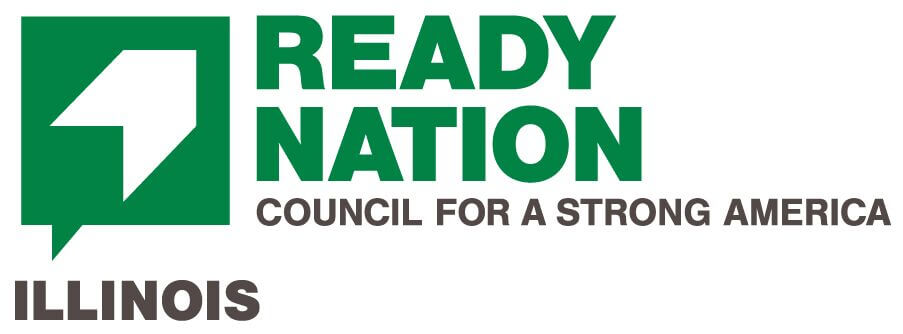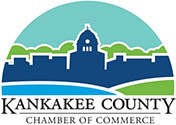New report details impact on working parents & employers;
costs of infant-toddler care limitations have doubled since pre-COVID
Feb. 2 – Infant-toddler child care challenges drain an estimated $4.9 billion from Illinois’ economy every year, significantly curtailing working parents’ income and job opportunities as well as business stability and productivity, according to a new report.
Furthermore, that economic price tag has more than doubled since 2018, largely reflecting the effects of the COVID-19 pandemic on child care access and availability—and demanding far greater public policy responses, the ReadyNation report finds.
“When working families can’t find stable, affordable child care, everybody loses. From parents’ paychecks to employers’ productivity, our economy suffers billion-dollar consequences,” said Kayla Edwards, Managing Partner at Express Employment Professionals in Springfield, Bloomington, and Jacksonville. She is a member of the nonprofit, nonpartisan, ReadyNation network of over 2,000 business leaders nationwide, including 270 in Illinois.
“For a long time, our workforce has suffered from too few child care options and—as we know—the pandemic only exacerbated problems,” added ReadyNation Illinois member Paula Schmidt, who is President of the Geneva Chamber of Commerce. “This is an economic crisis that continues to call for top-priority attention and action.”
The new report updates findings that ReadyNation first published four years ago, when infant-toddler child care insufficiencies totaled an estimated $57 billion hit to the U.S. economy overall and an estimated $2.4 billion to Illinois, specifically. Those projections now have leapt to a staggering $122 billion nationwide and $4.9 billion in Illinois.
It’s significant to note that these reports have quantified only the effects of the limitations of care for children younger than age 3; economic costs would climb exponentially if they also accounted for the repercussions of the child care shortage affecting children aged 3 to 12.
These costs relate to inadequate access, affordability, and quality of care for young children, according to the report. For instance, 58% of Illinoisans live in a child care “desert,” where there are more than three children under age 5 for every licensed child care slot. Plus, in Illinois, the average cost of full-time, center-based, infant-toddler child care hovered around $15,000 in 2021.
The ReadyNation report includes the results of a national survey of more than 800 working parents of children under age 3, conducted in December 2022. Respondents reported pitfalls such as:
-
Almost three-quarters of parents called child care access a challenge.
-
64% said they’d been late for work or left early because of child care problems in the previous three months, while one-third said they’d had to switch from full-time to part-time work.
-
About a quarter of polled parents said they’d either quit a job, been let go, or been fired due to child care struggles.
Overall, according to projections, such infant-toddler child care challenges cost families an annual average of $5,520 per working parent in lost earnings and in time spent looking for work. These problems further cost businesses an average of $1,640 per working parent in reduced revenue and in extra hiring costs. Finally, the tax base suffers: Taxpayers lose an average of $1,470 per working parent in lower federal income and sales tax revenue.
Admirably, as COVID amplified the nation’s economic challenges and intensified long-standing problems with child care access and affordability, federal policymakers approved pandemic-relief that—in many cases—filled-in some important blanks.
In Illinois, the federal assistance helped to fuel over a billion dollars in grants to help keep child care providers afloat, cover their bills, and bolster staff recruitment, training, and support. Gov. Pritzker and state policymakers have also taken several steps to expand eligibility for the state’s Child Care Assistance Program and invest further in preK. Yet, many challenges remain.
Now, with federal relief dollars expiring, ReadyNation’s business leaders are calling upon state and federal authorities to take further, bold action to boost child care, early education, and the economy that depends upon it.
The Governor’s recent inaugural pledge to further strengthen preschool and eliminate child care “deserts” is heartening, said ReadyNation Illinois Director Sean Noble. There’s a solid blueprint to follow in the 2021 recommendations of a bipartisan, statewide commission that envisioned substantial, systemic improvements in the access, equity, and quality of Illinois’ birth-to-5 services, he added.
“Preschool and other early care staff represent the ‘workforce behind our entire workforce,’ and are critical to economic recovery,” he said, noting that ReadyNation and its allies are seeking a 20% funding increase for key early childhood priorities in the FY24 state budget to move Illinois further toward realization of the commission’s recommendations.
# # #
ReadyNation is a nonprofit, nonpartisan network of more than 2,000 business leaders across the country – including 270 in Illinois – who focus on strengthening our workforce and economy through research-proven investments in kids. It is part of the Council for a Strong America, a national, bipartisan nonprofit that unites several organizations (including law enforcement and retired military leaders) to promote solutions ensuring that children can be successful, both in school and beyond. Visit this link for the national report “$122 Billion: The Growing, Annual Cost of the Infant-Toddler Child Care Crisis,” which includes state-by-state projections such as that for Illinois. Or go to www.tinyurl.com/4ca3xjyc.


